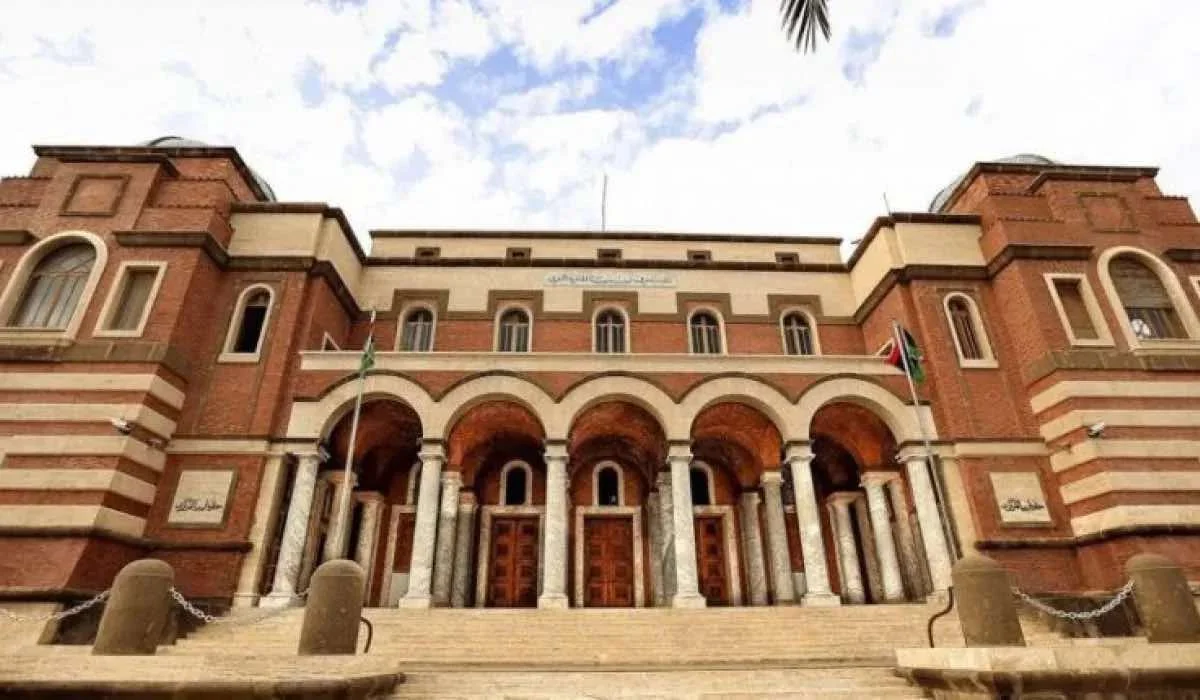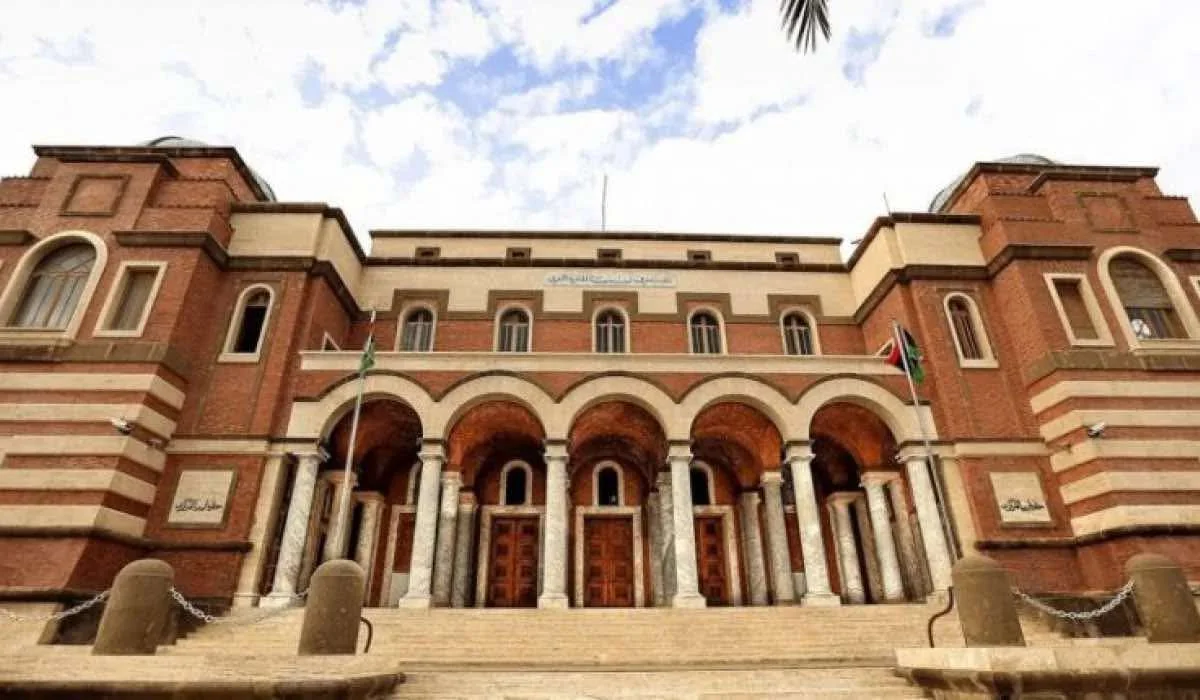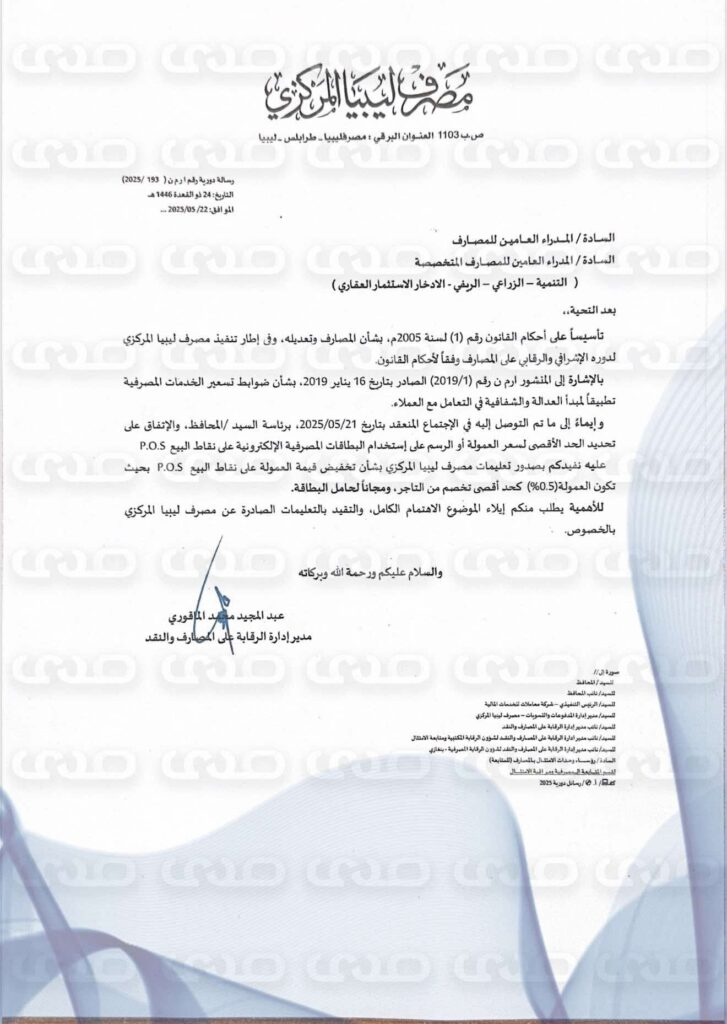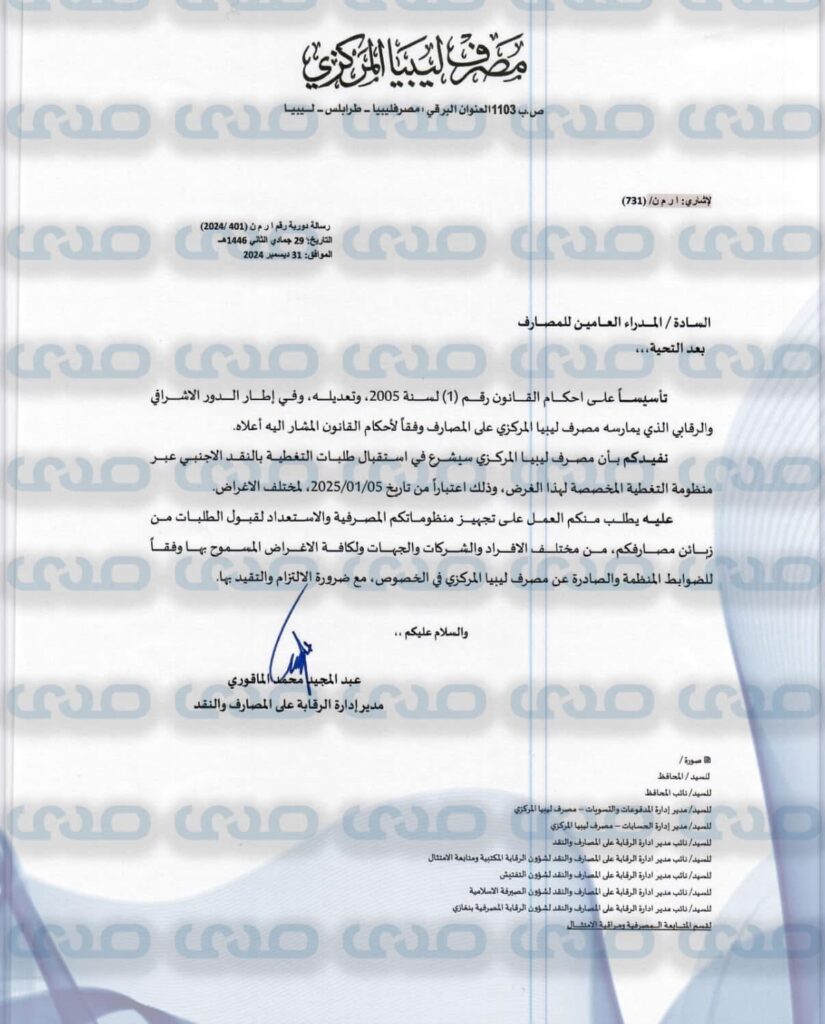Wali: “Withdrawing Some Banknotes from Circulation Is a Step in the Right Direction and Has a Direct Impact on the National Economy”
Economist Ibrahim Wali wrote an article in which he stated:
The Banking Sector Between Past and Present:
Economic reform policies must be based on implementing the policy of economic liberalization, under which the market’s role in directing economic activity is activated, along with restructuring public sector institutions on investment-based foundations. This would, in turn, lead to economic stability in Libya and provide a favorable climate for the flow of both foreign and domestic investment into the country.
All of these matters are reflected in the banking system, which we are currently in dire need of developing in all its forms, due to the administrative and financial issues it faces, as well as the severe shortage of trained human resources. Therefore, I saw the need to discuss with you through this paper a central issue among the most important facing the banking sector in our beloved Libya — the issue of privatizing public sector banks. It is a mechanism whose importance is undisputed both locally and globally due to considerations of efficiency, competition, boosting self-capacity, and contributing to raising the efficiency of the economic and financial sectors to achieve high development rates, thereby achieving the goal of comprehensive development of the Libyan economy.
Although there are some reservations from notable public and economic figures known for their competence, these reservations have raised issues related to how the five local public commercial banks at that time played an outstanding national role in maintaining the stability of the national economy for a long period since their nationalization or “Libyanization” and their handover to Libyan national giants in the banking industry, such as: Rajab Abdullah Al-Maslaty, Faraj Qumra, Abdullah Ammar Al-Saudi, Bashir Al-Zuqni, Ibrahim Al-Halawi, Abdul Qader Al-Raqi’i, Hammouda Al-Aswad, Al-Hadi Al-Jitili, Jumaa Saeed Jumaa, Mohamed Ibrahim Hammouda, Ayad Al-Sayed Daheem, Mohamed Hassan Al-Nahaissi — may God have mercy on those who have passed and grant long life to those still among us — and many honorable nationalists whose names escape my memory. I urge you to mention them in the comments so the current generation in banking can recognize them.
From that time until 2011, these banks were a haven for all investors and savers in Libya — small and large, individuals and companies, and even strategic factories founded by the previous regime that ended and collapsed due to mismanagement and theft — all of which had been supported by national Libyan banks.
Libyan public banks have always been the most stable and secure throughout the years prior to 2011 and were not subjected to fluctuations or losses, thanks to the efforts of their national employees at the time and their expertise, which maintained the lowest possible level of national economic stability — especially during the unjust embargo imposed on us by the most powerful nations, namely the United States of America and the United Nations, which lasted for nearly eight years. During that period, the Libyan banking system managed to preserve Libyan reserves, evade freezing procedures, and save our beloved nation from the specter of famine, poverty, and disease — unlike what happened in other countries like Iraq.
In addition, we were able to recover the Libyan people’s frozen assets during the embargo through international courts. Thus, the Libyan banking system — with the help of the Libyan Foreign Bank’s network of branches in most countries of the world and its international banking relationships — was able to reduce the impact of the economic blockade imposed on Libya by offering banking facilities, strengthening letters of credit, and providing guarantees for commercial banks and institutions owned by Libya at home and abroad, preserving Libyan funds and ensuring the flow of food and industrial commodities and raw materials, which sustained the continuity of banking services for the national economy at minimal cost.
The Libyan banking sector was not only cautious about the privatization of some public banks because of its important economic role at the time, but also due to the national role played by public banks in Libya, where they carried the unjust historical burden caused by the nationalization of private establishments and institutions in 1987 — at that time, the private sector was the second wing of the national economy after the public sector.
These banks supported various sectors of the national economy and often stood by many national institutions, projects, and strategic factories that faced collapse due to administrative corruption and inefficiency, by injecting new capital into them and restructuring them so they could recover and benefit the national economy. Such efforts may not be possible for private banks due to limitations related to their deposit base or capital size.
Furthermore, public banks in Libya played a vital social role. The support provided by the public banking sector contributed to funding research centers, hospitals, knowledge institutions, and cultural and social centers, reviving many research and health projects that would not have existed without this public banking support. The five public sector banks, along with the Central Bank of Libya, the Libyan Foreign Bank, and specialized banks, were a model of patriotism and dedication to serving the homeland and its citizens.
The fierce struggle and legitimacy crisis between governing bodies in Libya did not stop at mismanagement and corruption in the administration of the country, but extended to the banking sector, whose latest victims include public sector banks, the Central Bank of Libya, the Libyan Foreign Bank, and other specialized banks — all now entangled in the legitimacy struggle between competing political bodies, torn apart by foreign agendas and internal obstinance.
After the banking sector had remained for years under unified management and away from the whirlpool of divisions and conflicts, our national economy must now be assigned a new and precise strategy developed by highly competent experts to restructure the economy in order to increase competitiveness, transfer technology and knowledge, and operate efficiently and effectively as expected by the Libyan citizen. The revival of our beloved Libya’s youth and economic strength lies in a banking sector capable of financing reconstruction projects, factories, housing units, and other infrastructure as needed. Banks are the beating heart of this economy, and clinging to outdated banking frameworks is like renewing the body of the national economy but leaving its heart diseased — if we do not train and develop the youth on modern banking technology and industry, this economy will continue to suffer with a sick heart.
What is the state of Libyan banks today?
A failed monetary policy — due to the lack of integration and overlap between monetary, fiscal, and trade policies — has caused the collapse of the Libyan dinar. Temporary and fragile reforms were implemented, as if in a test lab, without proper study and with patchwork solutions. As a result, the national economy now suffers from the two gaps: the public budget deficit and the balance of payments deficit. The specter of inflation will return to haunt the economy once again. If the three policies do not integrate, the economic situation will worsen and deteriorate further, bringing back the chaos of banks, corruption, liquidity crises, and the humiliation of Libyans and their women in bank queues.
As for withdrawing some denominations from circulation, it is a step in the right direction and has a direct impact on the national economy in general and on monetary policy in particular. However, the Central Bank of Libya must address the serious negative aspects related to this process, which include:
- Some profiteering traders involved in illicit activities (dirty money laundering) — from drugs, contract fraud, bank deposits manipulation, credit manipulation, bribery, embezzlement, commercial fraud, currency counterfeiting, and other illegal sources — may take advantage of the withdrawal process to deposit these funds into their accounts. Are the risk and compliance departments in the banks and in the Central Bank ready to implement legal procedures to detect and deter these profiteers?
- These profiteers may resort to buying hard currency from the black market in order to exchange or sell the withdrawn denominations. This would lead to increased demand for foreign currency in the parallel market, just as happened with the 50-dinar note, where the Souq Al-Mushir became filled with sealed boxes of currency in plain view of market visitors, the Central Bank, and even under its own wall. This would lead to a depreciation of the national currency against the dollar and other currencies, and the consequences would be dangerous.
- It is necessary to print between 30 to 40 billion dinars or the equivalent value of the withdrawn denominations to replace them, so citizens do not experience a shortage in liquidity.
- I also advise the Central Bank of Libya to allow low-income citizens who have saved small amounts at home — for medical treatment, purchasing a vehicle, or any special occasion — and deposited these amounts in their bank accounts, to receive full refunds of these amounts directly or shortly after depositing them. These amounts could range between 10,000 and 40,000 dinars, for example.





















